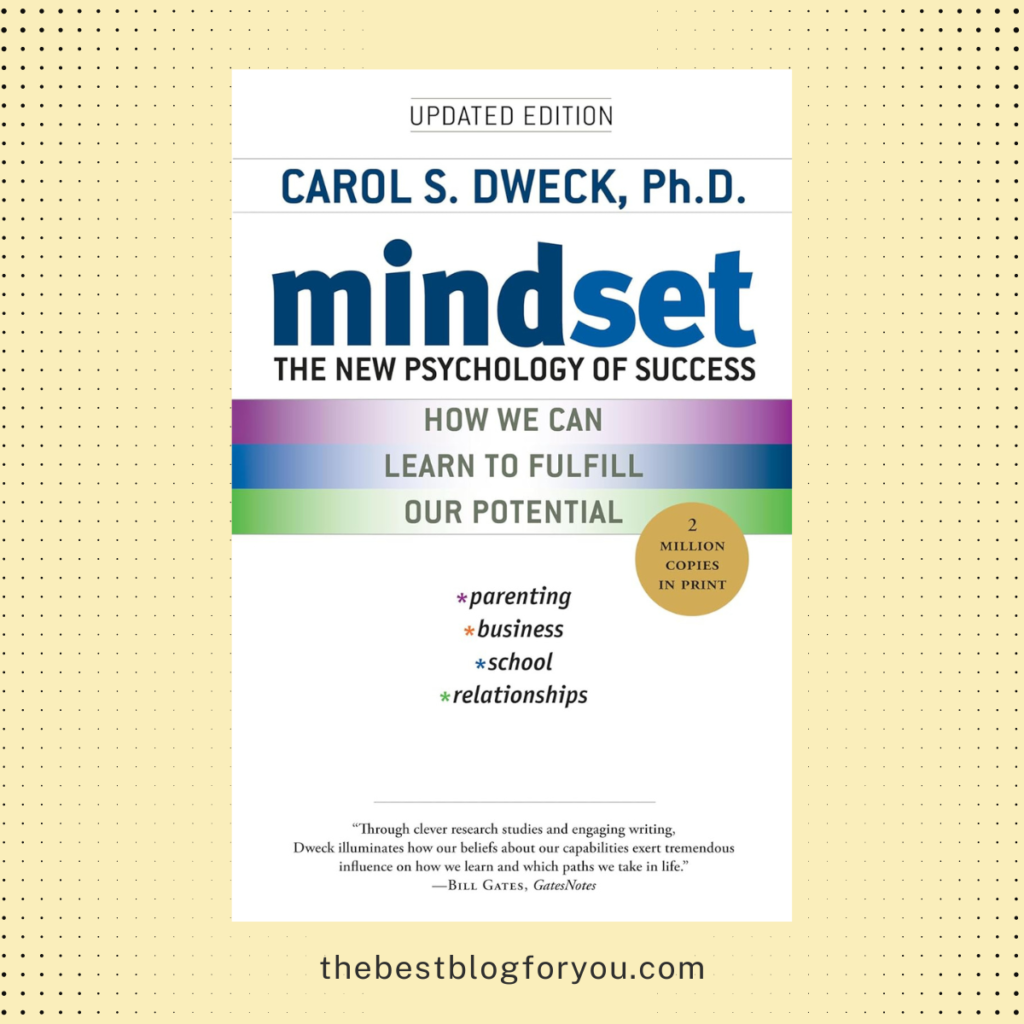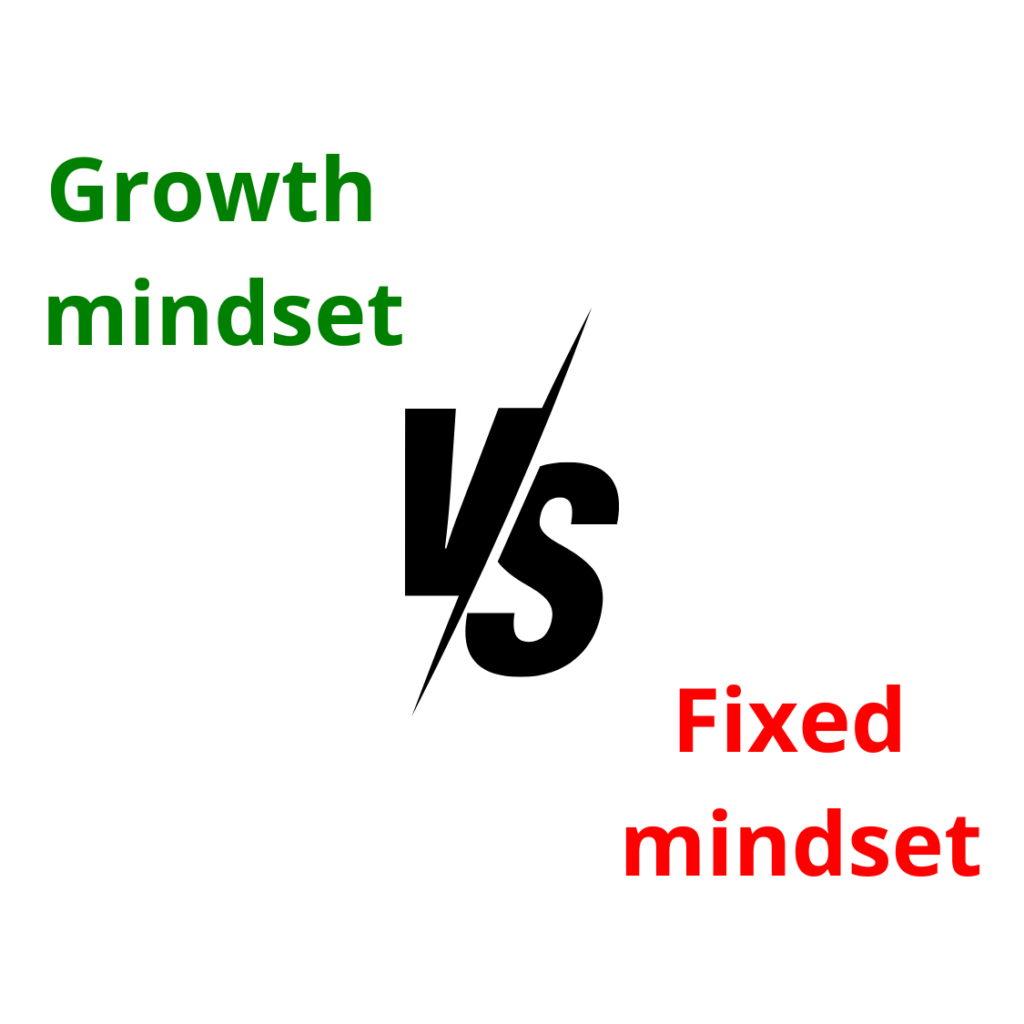
Intro
In her groundbreaking book, Mindset: The New Psychology of Success, psychologist Carol S. Dweck introduces readers to the transformative power of mindset. This concept is central to how individuals approach challenges, learning, and personal development. Dweck distinguishes between two primary mindsets: the fixed mindset and the growth mindset. This blog post will explore the key takeaways from the book, emphasizing how adopting a growth mindset can foster success in various aspects of life.
Understanding Fixed and Growth Mindsets

In Mindset: The New Psychology of Success, Carol S. Dweck delves deep into the contrasting perspectives of fixed and growth mindsets. Individuals with a fixed mindset believe that their abilities, intelligence, and talents are static and unchangeable. This belief often leads them to avoid challenges, give up easily when faced with difficulties, and see effort as pointless. They might feel threatened by the success of others and are more likely to view failure as a personal flaw or limitation.
On the other hand, those with a growth mindset see abilities as malleable and capable of development through dedication and effort. They embrace challenges, persist in the face of setbacks, and understand that effort is a crucial component of mastery. Rather than viewing failure as a negative outcome, they see it as a valuable learning experience that can provide insights for future success. This mindset fosters resilience, a willingness to learn, and a passion for stretching oneself beyond current capabilities.
The belief in the potential for growth leads to a more proactive approach to life’s challenges and opportunities. It encourages individuals to seek out new experiences, take risks, and continuously improve their skills and knowledge. This perspective can significantly influence how people interact with their environment, handle criticism, and pursue their goals. By understanding the fundamental differences between fixed and growth mindsets, individuals can begin to recognize their own thought patterns and make conscious efforts to shift towards a more growth-oriented outlook.
The Impact of Mindsets on Learning and Achievement

Carol S. Dweck’s research in Mindset: The New Psychology of Success underscores the powerful influence that mindsets have on learning and achievement. Students who possess a growth mindset are more inclined to face academic challenges head-on, showing resilience and determination. These students view obstacles not as insurmountable barriers but as opportunities to develop their abilities. They understand that effort is a pathway to mastery, which often results in higher levels of academic success and personal satisfaction.
In contrast, students with a fixed mindset are more likely to avoid challenging tasks due to a fear of failure or a belief that their abilities are inherently limited. This avoidance can lead to underperformance and a lack of engagement in the learning process. Dweck’s findings suggest that students who believe their intelligence and talents can be developed through hard work and perseverance are more motivated to put in the effort required to succeed.
Teachers and parents play a crucial role in shaping these mindsets. For instance, emphasizing the learning process rather than just the outcome can encourage a growth-oriented approach. When educators and parents praise effort, strategy, and progress, they reinforce the idea that intelligence and skills are not fixed traits but can be cultivated over time.
Moreover, the development of a growth mindset isn’t just beneficial for academic achievement; it also enhances students’ overall attitude towards learning. They become more open to new experiences, more willing to take intellectual risks, and more resilient in the face of setbacks. This shift in perspective can transform their educational journey, making them lifelong learners who thrive on challenges and view failures as essential stepping stones to success.
Cultivating a Growth Mindset in Education

Dweck’s research provides crucial insights into how educators and parents can nurture a growth mindset in children. One effective approach is to emphasize the learning process over innate ability. For instance, when children are praised for their effort and strategy, they are more likely to understand that success stems from hard work and perseverance rather than fixed traits. Using specific language that encourages a growth mindset can be incredibly impactful. Phrases like “You put a lot of effort into this project!” are more beneficial than comments like “You’re naturally talented.”
Additionally, creating an educational environment that promotes risk-taking and views mistakes as valuable learning experiences can foster a growth mindset. Teachers can integrate activities that challenge students and encourage them to step out of their comfort zones. By framing challenges as opportunities for growth, educators can help students develop resilience and a love for learning.
Parents also play a vital role in this developmental process. Modeling a growth mindset at home and sharing personal stories of overcoming obstacles can inspire children to adopt a similar outlook. Engaging in discussions that focus on learning from setbacks rather than dwelling on failures can further reinforce this mindset.
Moreover, it’s essential for both teachers and parents to provide constructive feedback that highlights progress and effort. When children see that their hard work leads to improvement, they are more likely to stay motivated and committed to their goals. By incorporating these practices, we can help children build a foundation for lifelong learning and achievement.
Mindsets in the Workplace and Career Development

In the professional realm, embracing a growth mindset can significantly enhance career trajectories and workplace culture. Employees with a growth mindset tend to seek out challenges and view obstacles as opportunities for development rather than setbacks. This proactive approach fosters continuous learning and skill enhancement, making individuals more adaptable and valuable to their organizations.
Leaders and managers who cultivate a growth mindset within their teams can drive higher levels of innovation and collaboration. By encouraging a culture where feedback is seen as a tool for growth, rather than criticism, companies can empower employees to take ownership of their professional development. This environment not only boosts individual performance but also enhances team dynamics and overall organizational productivity.
Additionally, a growth mindset can improve resilience and stress management in the workplace. Employees who view setbacks as part of the learning process are more likely to persevere through challenges, maintaining a positive attitude and high levels of engagement. This resilience is crucial in fast-paced and constantly evolving industries where adaptability is key.
Mentorship and professional development programs that emphasize the importance of effort and continuous improvement can further embed a growth mindset within the corporate culture. By highlighting success stories and offering opportunities for skill development, companies can motivate employees to strive for excellence and innovation.
Transforming Personal Relationships with a Growth Mindset

Adopting a growth mindset can significantly enhance the quality of personal relationships by fostering better communication, empathy, and understanding. Individuals with a growth mindset are more likely to approach conflicts constructively, viewing them as opportunities for mutual growth and learning rather than as insurmountable obstacles. This perspective encourages open dialogue, where both parties feel heard and understood.
People who see relationships as dynamic and evolving are more willing to invest time and effort into nurturing these connections. They understand that just like personal skills, relationships require continuous effort and adaptability. This approach can lead to more resilient and satisfying partnerships, as both individuals are committed to growing together.
Furthermore, a growth mindset can improve emotional intelligence. By being open to feedback and willing to change, individuals become better at recognizing and responding to the emotions of others. This heightened emotional awareness can strengthen bonds and create a more supportive and harmonious environment.
In parenting, a growth mindset helps parents model positive behaviors for their children. By demonstrating how to overcome challenges and learn from mistakes, parents can teach their children valuable life skills that will benefit them in their own relationships.
Ultimately, fostering a growth mindset in personal interactions encourages a more flexible, optimistic, and proactive approach, leading to deeper and more meaningful connections.
Practical Steps to Develop a Growth Mindset

Cultivating a growth mindset involves intentional practices and self-awareness. Start by monitoring your self-talk; notice when you default to fixed mindset phrases and consciously reframe them. Instead of saying, “I can’t do this,” try, “I can’t do this yet.” This small shift in language can make a big difference in how you approach challenges.
Setting clear, attainable goals can also pave the way for growth. Break down larger objectives into smaller, manageable tasks that can be achieved incrementally. This not only provides a sense of accomplishment but also keeps motivation high.
Seeking constructive feedback is another critical component. Approach feedback with an open mind, viewing it as a valuable resource for improvement rather than a critique of your abilities. This perspective can help you identify areas for growth and create a plan for development.
Embrace challenges and view them as opportunities to stretch your abilities. Reflect on past failures not as indicators of your limitations, but as lessons that can inform future success. Analyze what went wrong, what you could have done differently, and how you can apply those insights moving forward.
Finally, surround yourself with individuals who encourage a growth-oriented mindset. Whether through mentors, peers, or communities, engaging with people who value learning and resilience can provide both support and inspiration. By integrating these practices into your daily routine, you can foster a mindset that not only embraces growth but thrives on it.

2 thoughts on “Key Takeaways from Mindset: The New Psychology of Success”
Comments are closed.